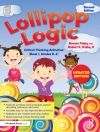We live in a world that is increasingly characterised as full of risk, danger and threat. Every day a new social issue emerges to assail our sensibilities and consciences. Drawing on the popular Economic Social and Research Council (ESRC) seminar series, this book examines these social issues and anxieties, and the solutions to them, through the concept of moral panic.
With a commentary by Charles Critcher and contributions from both well-known and up-and-coming researchers and practitioners, this is a stimulating and innovative overview of moral panic ideas, which will be an essential resource.
Inhaltsverzeichnis
Commentary – Charles Critcher;
Preface – Viviene E. Cree, Gary Clapton & Mark Smith;
Part 1: Gender and the Family;
Introduction – Viviene E. Cree;
1. Women and children first. Contemporary Italian moral panics and the role of the state – Morena Tartari;
2. Myths, monsters and legends: negotiating an acceptable working class femininity in a marginalised and demonised Welsh locale – Dawn Mannay;
3. Making a moral panic – ‘Feral families’, family violence and welfare reforms in New Zealand: Doing the work of the state? – Liz Beddoe;
4. The wrong type of mother: moral panic and teenage parenting – Sally Brown;
5. Amoral panic: The fall of the autonomous family and the rise of ‘early intervention’ – Stuart Waiton; Afterword – Maggie Mellon;
Part II: Young People, Children and Childhood;
Introduction – Gary Clapton;
1. Child protection and moral panic – Ian Butler;
2. Unearthing Melodrama: Moral Panic Theory and the Enduring Characterisation of Child Trafficking – Joanne Westwood;
3. Lost childhood? – Kay Tisdall;
4. Internet risk research and child sexual abuse: a misdirected moral panic? – Ethel Quayle;
5. The Rotherham Abuse Scandal – Anneke Meyer; Afterword – Mark Hardy;
Part III The State, Government and Citizens;
Introduction – Viviene E. Cree;
1. Children and Internet Pornography: A Moral Panic, a Salvation for Censors and Trojan Horse for Government Colonisation of the Digital Frontier – Jim Greer;
2. Internet Radicalisation and the ‘Woolwich Murder’ – David Mc Kendrick;
3. Moralising discourse and the dialectical formation of class identities: The social reaction to ‚Chavs‘ in Britain – Elias Le Grand;
4. The presence of the absent parent: Troubled families and the England ‘riots’ of 2011 – Steve Kirkwood;
5. Patient Safety: A moral panic – William Fear; Afterword – Neil Hume;
Part IV: Moral Crusades, Moral Regulation and Morality;
Introduction – Mark Smith;
1. The Moral Crusade Against Paedophilia – Frank Furedi;
2. Animal Welfare, Morals and Faith in the ‘Religious Slaughter’ Debate – David Grumett;
3. From genuine to sham marriage: Moral panic and the ‘authenticity’ of relationships – Michaela Benson & Katharine Charsley;
4. Integration, Exclusion and the Moral ‘Othering’ of Roma Migrant Communities in Britain – Colin Clark;
5. Assisted Dying: Moral Panic or Moral Issue? – Malcolm Payne;
Afterword: Heather Lynch; Conclusion – Viviene E. Cree, Gary Clapton & Mark Smith
Über den Autor
Dr Mark Smith is senior lecturer and head of social work at the University of Edinburgh. He has previous practice experience in residential child care.












